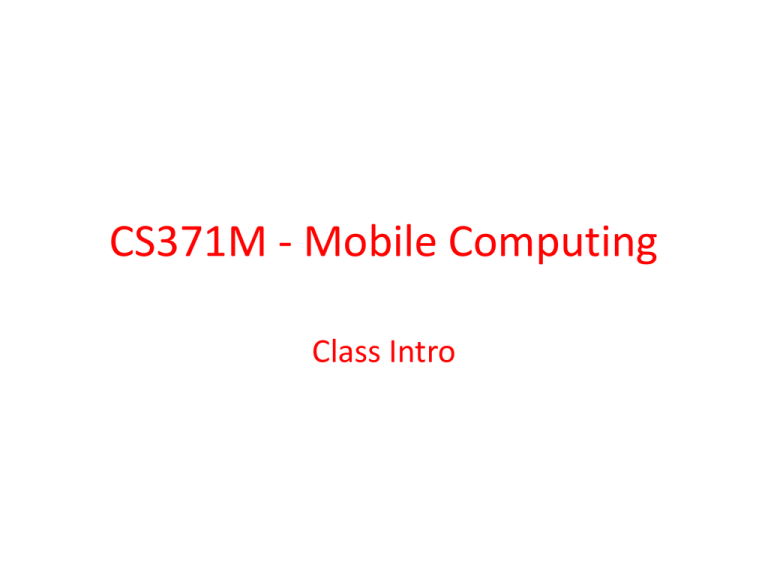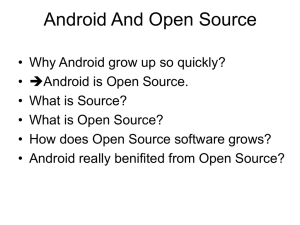CS371M - Mobile Computing Class Intro
advertisement

CS371M - Mobile Computing Class Intro Teaching Staff • Mike Scott – Lecturer – UT since 2000 – scottm@cs.utexas.edu lab hours MW 1 - 2 pm TA: The Course • Mobile computing with focus on application development for the Android operating system • Advise against taking if you have ever created a significant Android App on your own • Large, self-selected project with 3 students Mobile Computing is … Mobile Computing is … NDR = No Device Required • Android application development in Java using Android Studio • Emulator part of development environment – limitations • dev phones and tablets available during lab times and check out • wireless access only Work Products • Tutorials – step by step guide to creating small applications – tic - tac - toe • Individual assignments – mostly written • Project – design and implement an app and hopefully publish it on Google Play – broken into various milestones • 3 students per project • Point break down on syllabus Posters and Demos • In class poster days mid February • Group demo last weeks of class • CS Digital Demo day – Thursday afternoon during finals week Resources • Google's Android Development website • Commonwares – The Busy Coder's Guide to Android Development • StackOverflow for very specific questions • Other tutorials?? Class Materials • Syllabus, Schedule, and Resource Page – www.cs.utexas.edu/~scottm/cs371m • Assignments, tutorials, grades on Canvas • Discussion group on Piazza • Linux machines have development environment – strongly recommend using your own system • Tutorial 1 - setting up dev environment on your own machine and using dev environment – Hello Android!! Course Material • Working in a system – not just a stand alone application • Use library / API – Primary language for Android is Java • User Interfaces and XML – ever create an anonymous inner class? • • • • • Location and Sensing Responsiveness Graphics and Events Gestures data bases / SQLite Past Apps Questions??? More Past Projects • • • • • Uncommon Books Trace Me Android Army Austin Recycling Pulsar




